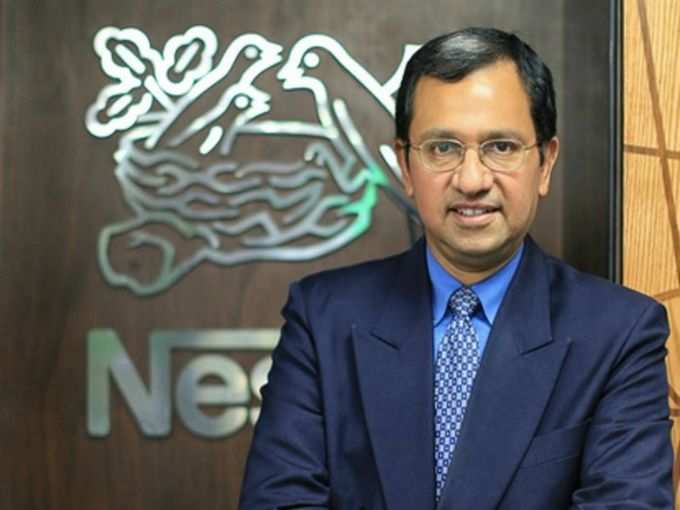 Suresh Narayanan, who was appointed as
Suresh Narayanan, who was appointed as Wan Ling Martello, executive vice-president at Nestle SA and one of the company's directors, is also in Delhi to oversee the transition in India.
In a joint interview to Economic Times, they said the company is eager to bring back
In this regard, Narayanan said he will resolve the issue through dialogue and engagement with all stakeholders, denying that Nestle India was ‘on the brink’.
“Deep down in my gut, the words that come to me are, 'we shall overcome.' I want to tell Maggi consumers--trust me, trust my brand. It is safe. To all employees, colleagues and associates who have been on the cause of Nestle for years, I just want to say--you can trust me,” he told ET.
When ET asked Nestle has replaced an expat CEO with an Indian to clean up the mess, Narayanan’s boss Martello said, “Suresh is Indian. But he was in Singapore, Egypt, Philippines. He has capabilities. The last bit was the icing on the cake--that Suresh happens to be Indian. As we look at appointments, it very much depends on at what stage and lifecycle the business is. We also look at what's good for the individual. We have not had an Indian MD (in India) but we have so many Indians in senior management positions (globally). I know Suresh's track record. He has the ability to inspire a team and nurture talent,” she said.
Maggi noodles was banned in India and taken off-shelves after FSSAI found MSG and excess lead content in the popular noodles.
When asked why Nestle India took 10 days to issue its first statement, Martello said that the incident was unfortunate incident and they will collectively reflect on what happened.
“I was not here. The local team was working with the centre. We were also getting test results. I don't want to dwell on what could have gone well. We should have probably gone on TV and be seen eating a bowl of Maggi noodles. I mean, look, I heard a lot of that comment. And you're right. Perception becomes reality. Do you think media handled it properly? There was a bit of a trial by media as well,” she told ET, reiterating the company’s claim Maggi product is safe and they have proof points.
“We've got black and white data. We look forward to engaging with different stakeholders, we expect to engage with FSSAI 100%. The irony of it all is that our interest and objectives are completely aligned with the Indian government. We do like a hundred million tests across the Nestle group. We have on a global basis 8,000 QA (quality assurance) people... 300 here in India. Whatever category it is, we test more than other people,” Martello told the financial daily.
Meanwhile, when asked if re-introducing Maggi would be a major challenge, Narayanan said that every assignment has had a different challenge.
“The four and half years I spent in Egypt, Libya and Sudan were the most challenging. Each of the assignments has had a facet that has been energising and stimulated me to give my best,” he said.
“I don't have a magical wand. It will be consistent, systematic hard work. We will step up engagement with government. I am not confrontational. For us quality is trust,” Narayanan told ET.
The
If India's image in the world outside as a safe destination for investment was hit or not, to this Martello replied, “We've been in India 102 years. We've always been part of the solution versus part of the problem. We have half a million people we touch indirectly. We buy over 90% of our ingredients locally. Think about our suppliers impacted by this. We've been trying to engage with the government to try to get this issue resolved. We should be able to show the world that the government and industry can come together for the good of the Indian consumer.”
(Image: Rajasthanpatrika)